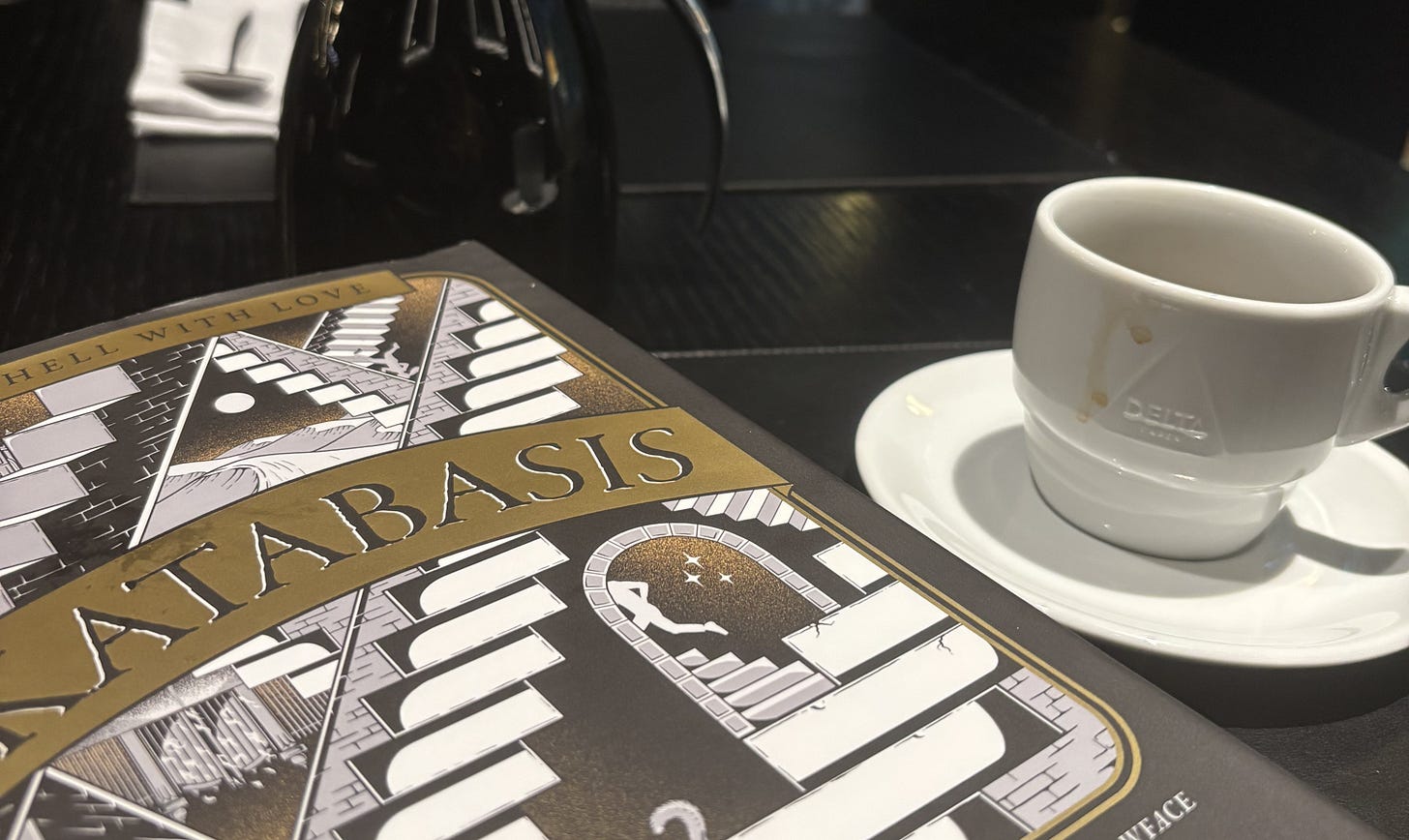everything we learn together in hell: a medievalist reads Katabasis
R.F. Kuang, Dante, Francesca da Rimini and Erichtho in new and bizarre worlds
This essay contains some spoilers for Katabasis, but more in terms of themes than plot events. I had friends who haven’t read the book yet in mind when I was writing it. If you’re very hard-line spoiler averse, though, I wouldn’t read it.
It’s a rare and wonderful thing when you read a book and think, ‘surely the universe created this entirely for me to read right now at this moment’. So R. F Kuang, the successful author from another country who has never met me and has no idea I exist, might believe she wrote Katabasis for herself or for the general public, but she’s wrong — she wrote it for me.
This summer, I gave my first ever Big Conference Presentation at the International Medieval Congress in Leeds. I talked about modern reinterpretations and reimaginings of Dante’s Inferno and how they change shape and get refracted through online spaces, fandom and ‘dark academia’. For most of the presentation, I talked about Hozier’s Unreal Unearth and its fandom as an example of this kind of retelling that drags Dante forwards into new imaginary worlds and puts him in new contexts. On the very last slide before the references, I showed the cover of Katabasis and said there’s a lot still to be said about where Dante is going next, but I hadn’t read the book so I couldn’t say any of it yet.
And before that, when I wrote here on Substack about ways to understand the ‘dark academia novel’ as a genre, I used Babel as an example of a book where the main character’s central relationship isn’t with another person, it’s with the academia itself. A novel is dark academia, I suggested, if the relationship at its core is more about staring at learning than staring at people. Viewed this way, Katabasis might be the most dark academia novel ever written.
As a medievalist who is obsessed with understanding how ideas from the past manifest and rewrite themselves in the present, and as someone who wants to understand what the dark academia novel is and could be, Katabasis gives me a lot to talk about on a lot of fronts.
So what’s the book about?
Katabasis follows Alice Law, a PhD student in analytical magick at Cambridge, who decides she must journey through the nine circles of hell. She and Peter Murdoch, her peer studying under the same supervisor, reckon they have no choice but to travel to the depths of Hell and bring that supervisor back from death — otherwise they will have to completely restart their theses from scratch. With Alice and Peter, we take a picaresque journey through Hell’s various circles, courts thresholds, urban and rural areas. Rather than a straightforward Dante retelling, Kuang combines visions of Hell from across cultures, languages and continents in surrealist, academic, pantheistic melting pot. In its style and worldbuilding, we can see the European-ness of Babel, the Asian-ness of The Poppy War and the American-ness of Yellowface all mushed up into a surprisingly cohesive whole. Journeying through Hell, Alice thinks about the people she’s loved and been loved by, treated badly and been treated badly by, but mainly she thinks about her degrees.

